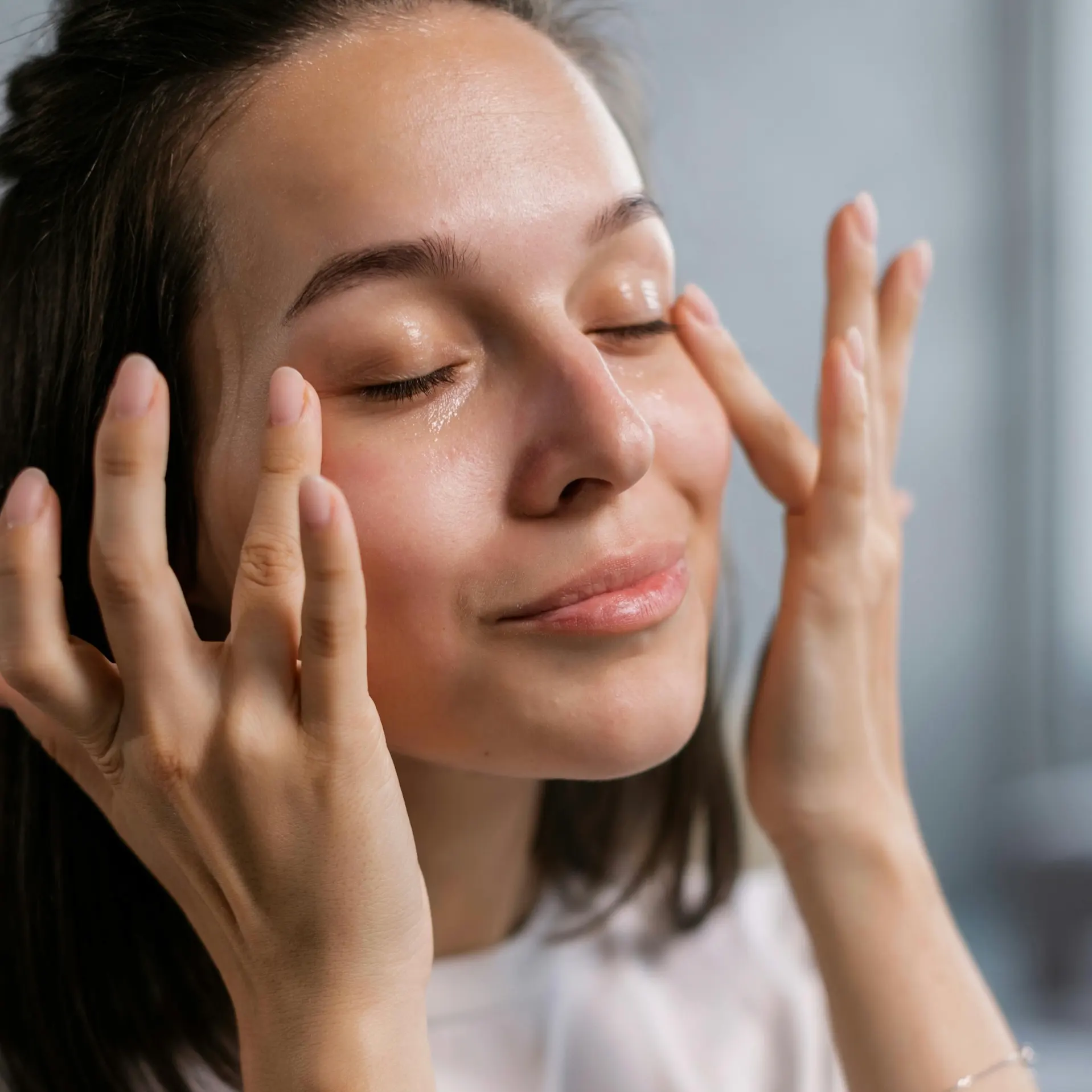Rosacea: natural remedies and managing your triggers


Rosacea is a common skin condition that causes redness, sensitivity, and sometimes small bumps. While there is no cure, rosacea can often be managed with gentle skincare and lifestyle awareness to help keep skin calm and comfortable.
Below are some gentle, supportive ways to care for rosacea-prone skin naturally.
Key takeaways
- Gentle skincare is essential - use mild cleansers and hydrating moisturisers with anti-inflammatory ingredients to soothe rosacea-prone skin.
- Identifying triggers can reduce flare-ups - common triggers include sun exposure, spicy foods, and stress.
- Sun protection is crucial - wear SPF 30+, seek shade, and avoid peak sun exposure to protect your sensitive skin.
What is rosacea?
Rosacea is a long-term inflammatory skin condition that affects millions of people worldwide. It usually appears as redness, flushing, and bumps on the cheeks, nose, chin, and forehead. In more severe cases, the skin may thicken, and small visible veins can form.
The exact cause of rosacea is still unknown, but factors like genetics, environmental triggers, and an overactive immune system may play a role.
While the causes can vary, many people find that understanding their individual triggers and using gentle skincare can help reduce flare-ups over time.
Identify your triggers
Everyone’s rosacea is different, so understanding your personal triggers can be an important part of managing flare-ups. Common triggers include:
- Sun exposure
- Spicy foods
- Hot drinks
- Alcohol
Keeping a simple skincare or lifestyle diary can help you notice patterns and identify what may be contributing to flare-ups over time.
Gentle skincare to support rosacea-prone skin
Rosacea makes the skin more sensitive and reactive, which is why gentle, barrier-supportive skincare is often recommended. Rather than trying to correct or treat rosacea, the aim is to reduce irritation and support the skin so it can feel more comfortable.
Use a gentle cleanser
Choosing a cleanser that feels comfortable on rosacea-prone skin can make a big difference. Harsh or foaming cleansers often leave skin feeling tight or irritated.
Some people prefer to explore gentle, rosacea-friendly skincare in smaller sizes first, to see how their skin responds. A mini skincare set can be a reassuring place to start.
Choose a moisturiser that soothes and protects
A suitable moisturiser for rosacea-prone skin should focus on hydration and barrier support, with ingredients that help calm inflammation and reduce sensitivity.
At Amaranthine, this is the approach I take when formulating our hydrating face cream, which is designed to support the skin barrier and comfort easily reactive skin.
Look for calming, anti-inflammatory ingredients
Ingredients such as chamomile, aloe vera, colloidal oatmeal, vitamin B3, matcha green tea, calendula, and sea buckthorn are commonly chosen to help calm irritation and support sensitive skin.

Occasional calming treatments
Some people find that a gentle, calming face mask can help skin feel cooler and more comfortable during periods of redness. Masks formulated specifically for sensitive or rosacea-prone skin are usually preferable to DIY options, as ingredient levels are carefully controlled.
Protect your skin
Sun exposure is one of the most common rosacea triggers. Taking steps to protect your skin can help reduce flare-ups and prevent irritation.
- Wear a broad-spectrum sunscreen (SPF 30 or higher) daily.
- Stay in the shade during peak sun hours.
- Wear a wide-brimmed hat for extra protection.

Manage stress
Stress can worsen rosacea flare-ups for some people, so finding ways to relax may help support calmer skin. You might find it helpful to try:
- Deep breathing exercises
- Yoga or meditation
- Mindfulness practices
Getting enough sleep and moving your body regularly can also support overall wellbeing and help keep stress levels in check.
Consider dietary changes
There’s no single rosacea diet, and food triggers can vary widely from person to person. Some people notice that certain foods, such as spicy dishes or alcohol, may worsen flare-ups, while others don’t see a clear connection at all.
If you suspect food may be a trigger for you, making small, gradual changes and observing how your skin responds can be more helpful than cutting out multiple foods at once.
Consult a dermatologist
Rosacea is a complex, long-term skin condition, and professional guidance can be an important part of managing it well. A dermatologist can help confirm a diagnosis, identify triggers, and recommend appropriate treatment options if needed.
If rosacea symptoms are persistent, worsening, or affecting your confidence or comfort, seeking expert advice can provide clarity and reassurance, alongside any supportive skincare routine you already have in place.
More on caring for rosacea-prone skin
Incorporating face oils into your rosacea skincare routine
How to find the best face mask for rosacea
Understanding the role of your skin barrier and repairing it after damage







